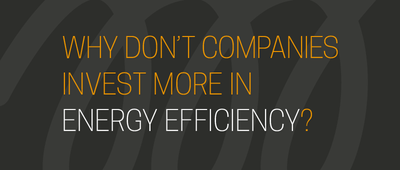From divestment to sterilisation: Reframing climate change as an existential risk
(Responsible investor, 13 Oct 2018) Incremental changes in the private sector will no longer meet the world’s climate needs, argue Raj Thamotheram and Ian Dunlop.
We are three months from COP24, the 24th time governments have met to affirm their intention to address climate change. As the physical impact of climate change worsens, with global climate-related losses running at record levels, the rhetoric from most governments – and now many non-state players – is truly impressive. But the reality is that next to nothing has been done to materially address climate change. We now face the need for emergency action if the worst impacts are to be avoided. With the exception of petro-state apologists in Australia, Canada, the USA and the like, the facts are not in doubt. 2017 saw the highest levels of carbon dioxide recorded, governments failed to reduce the subsidies going to fossil fuel companies despite committing to eliminating them completely by 2025, investment in renewables actually fell while investments in fossil fuels increased. Meanwhile, record temperatures are occurring in the Arctic, parts of Asia and the US which may well trigger potentially irreversible climatic feedback loops.
The option of a gradual transition path to prevent temperatures rising above 2°C limit – as governments agreed in Paris in 2015 – is now clearly off the table.
Sadly, the option of a gradual transition path to prevent temperatures rising above 2°C limit – as governments agreed in Paris in 2015 – is now clearly off the table. We have left it too late for anything other than emergency action; climate change is now an immediate existential risk to human civilisation as we know it. That is, a risk posing large negative consequences which will result inter alia in major reductions in population via forced migration and spikes in weather-related mortality (often in countries that have done least to cause global warming), accelerated species extinction, disruption of economies and social chaos including major population movements. Importantly, the risk is immediate in that it is being locked in today by our insistence on expanding the use of fossil fuels when the carbon budget to stay below sensible temperature increase limits is already exhausted. In short, dramatic action is needed and only civil society is able to get this ball rolling. Dramatic change is called for from all parties. Think wartime regulation rather than the voluntary incrementalism that business typically favours and many others, campaigners and NGOs included, have come to accept.
Everyone needs to make this paradigm shift and for climate advocates and campaigners this means switching from calling for divestment to pushing for ‘sterilisation’.
But why this dramatic action just when, in the top echelons of the global corporate and investment communities, climate risk seem to be finally reversing decades of ‘wilful blindness’? Of course, we welcome the recent movements by, amongst others, the Task Force on Climate-Related Financial Disclosure (TCFD). In Australia for example, legal opinion has confirmed that: “company directors who fail to properly consider and disclose foreseeable climate-related risks to their business could be held personally liable for breaching their statutory duty of care and diligence under the Corporations Act.”. Regulators in several countries seem to be finally waking up to the fact that climate risk has the potential to create a crisis far greater than the 2008 Global Financial Crisis, emphasising that: “climate risks are foreseeable, material and actionable now”.







